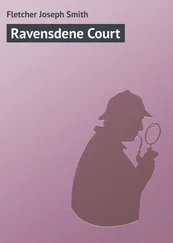Joseph Fletcher - The Herapath Property
Здесь есть возможность читать онлайн «Joseph Fletcher - The Herapath Property» — ознакомительный отрывок электронной книги совершенно бесплатно, а после прочтения отрывка купить полную версию. В некоторых случаях можно слушать аудио, скачать через торрент в формате fb2 и присутствует краткое содержание. Жанр: foreign_prose, Классический детектив, foreign_detective, foreign_antique, на английском языке. Описание произведения, (предисловие) а так же отзывы посетителей доступны на портале библиотеки ЛибКат.
- Название:The Herapath Property
- Автор:
- Жанр:
- Год:неизвестен
- ISBN:нет данных
- Рейтинг книги:5 / 5. Голосов: 1
-
Избранное:Добавить в избранное
- Отзывы:
-
Ваша оценка:
- 100
- 1
- 2
- 3
- 4
- 5
The Herapath Property: краткое содержание, описание и аннотация
Предлагаем к чтению аннотацию, описание, краткое содержание или предисловие (зависит от того, что написал сам автор книги «The Herapath Property»). Если вы не нашли необходимую информацию о книге — напишите в комментариях, мы постараемся отыскать её.
The Herapath Property — читать онлайн ознакомительный отрывок
Ниже представлен текст книги, разбитый по страницам. Система сохранения места последней прочитанной страницы, позволяет с удобством читать онлайн бесплатно книгу «The Herapath Property», без необходимости каждый раз заново искать на чём Вы остановились. Поставьте закладку, и сможете в любой момент перейти на страницу, на которой закончили чтение.
Интервал:
Закладка:
“Kitteridge thinks that highly improbable,” replied Selwood. “He says that Mr. Herapath had made no preparation for a sudden journey, has taken no travelling coat or rug, or luggage of any sort.”
“Did he come in from the House?” she asked. “Perhaps not?”
Kitteridge pointed to the supper-tray and then indicated the coachman.
“He came in as usual, miss,” he replied. “Or rather an hour later than usual. Mountain brought him home at one o’clock, and he saw him let himself in with his latch-key.”
Peggie Wynne turned to the coachman.
“You’re sure that he entered the house?” she asked.
“As sure as I could be, miss,” replied Mountain. “He was putting his key in the door when I drove off.”
“He must have come in,” said Kitteridge, pointing to the tray. “He had something after he got in.”
“Well, go and tell the servants not to talk, Kitteridge,” said Peggie. “My uncle, no doubt, had reasons for going out again. Have you said anything to Mr. Tertius?”
“Mr. Tertius isn’t down yet, miss,” answered the butler.
He left the room, followed by the coachman, and Peggie turned to Selwood. “What do you think?” she asked, with a slight show of anxiety. “You don’t know of any reason for this, do you?”
“None,” replied Selwood. “And as to what I think, I don’t know sufficient about Mr. Herapath’s habits to be able to judge.”
“He never did anything like this before,” she remarked. “I know that he sometimes gets up in the middle of the night and comes down here, but I never knew him to go out. If he’d been setting off on a sudden journey he’d surely have let me know. Perhaps–”
She paused suddenly, seeing Selwood lift his eyes from the papers strewn about the desk to the door. She, too, turned in the same direction.
A man had come quietly into the room—a slightly-built, little man, grey-bearded, delicate-looking, whose eyes were obscured by a pair of dark-tinted spectacles. He moved gently and with an air of habitual shyness, and Selwood, who was naturally observant, saw that his lips and his hands were trembling slightly as he came towards them.
“Mr. Tertius,” said Peggie, “do you know anything about Uncle Jacob? He came in during the night—one o’clock—and now he’s disappeared. Did he say anything to you about going away early this morning?”
Mr. Tertius shook his head.
“No—no—nothing!” he answered. “Disappeared! Is it certain he came in?”
“Mountain saw him come in,” she said. “Besides, he had a drink out of that glass, and he ate something from the tray—see!”
Mr. Tertius bent his spectacled eyes over the supper tray and remained looking at what he saw there for a while. Then he looked up, and at Selwood.
“Strange!” he remarked. “And yet, you know, he is a man who does things without saying a word to any one. Have you, now, thought of telephoning to the estate office? He may have gone there.”
Peggie, who had dropped into the chair at Herapath’s desk, immediately jumped up.
“Of course we must do that at once!” she exclaimed. “Come to the telephone, Mr. Selwood—we may hear something.”
She and Selwood left the room together. When they had gone, Mr. Tertius once more bent over the supper tray. He picked up the empty glass, handling it delicately; he held it between himself and the electric light over the desk; he narrowly inspected it, inside and out. Then he turned his attention to the plate of sandwiches. One sandwich had been taken from the plate and bitten into—once. Mr. Tertius took up that sandwich with the tips of his delicately-shaped fingers. He held that, too, nearer the light. And having looked at it he hastily selected an envelope from the stationery cabinet on the desk, carefully placed the sandwich within it, and set off to his own rooms in the upper part of the house. As he passed through the hall he heard Selwood at the telephone, which was installed in a small apartment at the foot of the stairs—he was evidently already in communication with some one at the Herapath Estate Office.
Mr. Tertius went straight to his room, stayed there a couple of minutes, and went downstairs again. Selwood and Peggie Wynne were just coming away from the telephone; they looked up at him with faces grave with concern.
“We’re wanted at the estate office,” said Selwood. “The caretaker was just going to ring us up when I got through to him. Something is wrong—wrong with Mr. Herapath.”
CHAPTER II
IS IT MURDER?
It struck Selwood, afterwards, as a significant thing that it was neither he nor Mr. Tertius who took the first steps towards immediate action. Even as he spoke, Peggie was summoning the butler, and her orders were clear and precise.
“Kitteridge,” she said quietly, “order Robson to bring the car round at once—as quickly as possible. In the meantime, send some coffee into the breakfast-room—breakfast itself must wait until we return. Make haste, Kitteridge.”
Selwood turned on her with a doubtful look.
“You—you aren’t going down there?” he asked.
“Of course I am!” she answered. “Do you think I should wait here—wondering what had happened? We will all go—come and have some coffee, both of you, while we wait for the car.”
The two followed her into the breakfast-room and silently drank the coffee which she presently poured out for them. She, too, was silent, but when she had left the room to make ready for the drive Mr. Tertius turned to Selwood.
“You heard—what?” he asked.
“Nothing definite,” answered Selwood. “All I heard was that Mr. Herapath was there, and there was something seriously wrong, and would we go down at once.”
Mr. Tertius made no comment. He became thoughtful and abstracted, and remained so during the journey down to Kensington. Peggie, too, said nothing as they sped along; as for Selwood, he was wondering what had happened, and reflecting on this sudden stirring up of mystery. There was mystery within that car—in the person of Mr. Tertius. During his three weeks’ knowledge of the Herapath household Selwood had constantly wondered who Mr. Tertius was, what his exact relationship was, what his position really was. He knew that he lived in Jacob Herapath’s house, but in a sense he was not of the family. He seldom presented himself at Herapath’s table, he was rarely seen about the house; Selwood remembered seeing him occasionally in Herapath’s study or in Peggie Wynne’s drawing-room. He had learnt sufficient to know that Mr. Tertius had rooms of his own in the house; two rooms in some upper region; one room on the ground-floor. Once Selwood had gained a peep into that ground-floor room, and had seen that it was filled with books, and that its table was crowded with papers, and he had formed the notion that Mr. Tertius was some book-worm or antiquary, to whom Jacob Herapath for some reason or other gave house-room. That he was no relation Selwood judged from the way in which he was always addressed by Herapath and by Peggie Wynne. To them as to all the servants he was Mr. Tertius—whether that was his surname or not, Selwood did not know.
There was nothing mysterious or doubtful about the great pile of buildings at which the automobile presently stopped. They were practical and concrete facts. Most people in London knew the famous Herapath Flats—they had aroused public interest from the time that their founder began building them.
Jacob Herapath, a speculator in real estate, had always cherished a notion of building a mass of high-class residential flats on the most modern lines. Nothing of the sort which he contemplated, he said, existed in London—when the opportunity came he would show the building world what could and should be done. The opportunity came when a parcel of land in Kensington fell into the market—Jacob Herapath made haste to purchase it, and he immediately began building on it. The result was a magnificent mass of buildings which possessed every advantage and convenience—to live in a Herapath flat was to live in luxury. Incidentally, no one could live in one who was not prepared to pay a rental of anything from five to fifteen hundred a year. The gross rental of the Herapath Flats was enormous—the net profits were enough to make even a wealthy man’s mouth water. And Selwood, who already knew all this, wondered, as they drove away, where all this wealth would go if anything had really happened to its creator.
Читать дальшеИнтервал:
Закладка:
Похожие книги на «The Herapath Property»
Представляем Вашему вниманию похожие книги на «The Herapath Property» списком для выбора. Мы отобрали схожую по названию и смыслу литературу в надежде предоставить читателям больше вариантов отыскать новые, интересные, ещё непрочитанные произведения.
Обсуждение, отзывы о книге «The Herapath Property» и просто собственные мнения читателей. Оставьте ваши комментарии, напишите, что Вы думаете о произведении, его смысле или главных героях. Укажите что конкретно понравилось, а что нет, и почему Вы так считаете.












